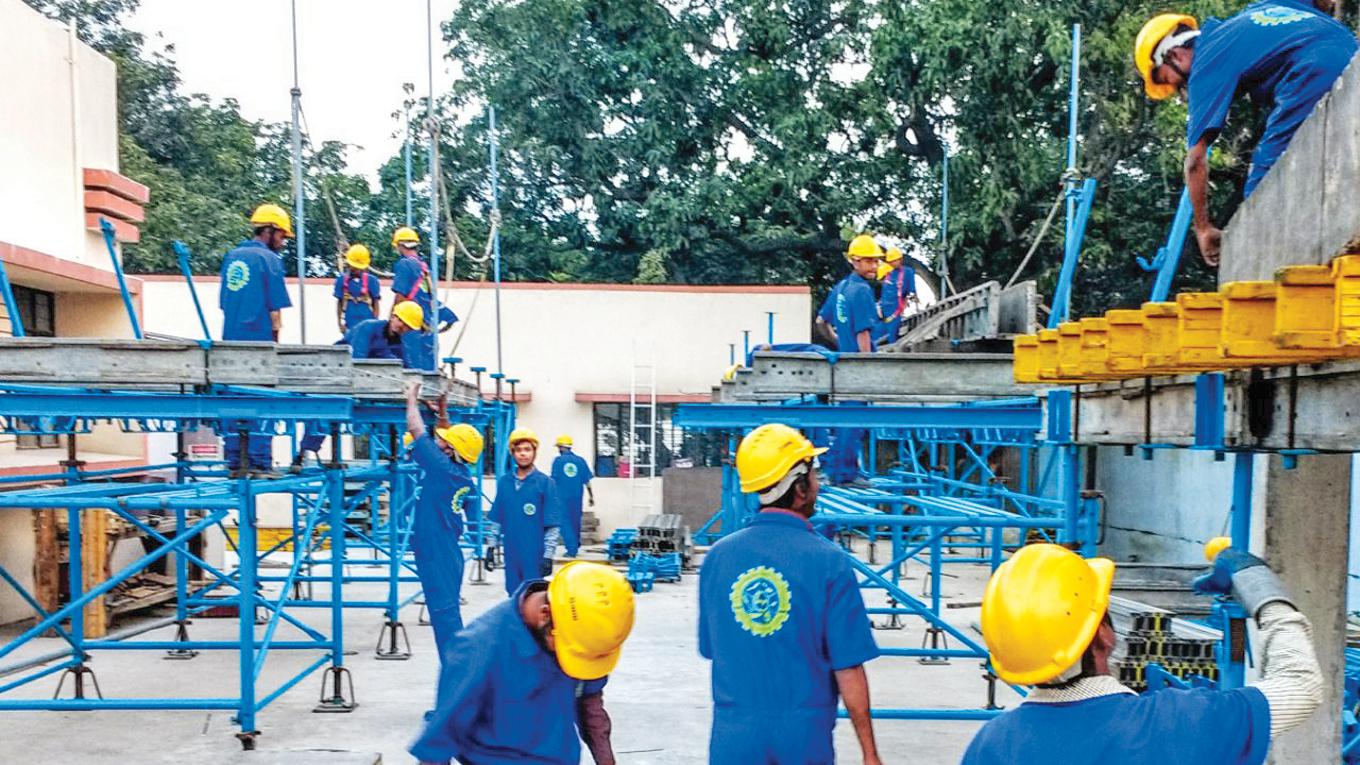-

Over 70.000 technicians trained so far
n a study conducted in the early 2000s, it was observed that every crore invested in a construction project generated employment of 22,000 unskilled man-days, 23,000 skilled/ semi-skilled man-days and 9,000 managerial and technical man-days. Lamentably, only 3 per cent of total teaching in India addressed the direct needs of construction, engineering and management aspects required in the construction industry. Given this trend, the 14th Engineering Congress on Human Capital Development observed that, unless remedial steps are taken in the near future, India may not have sufficient quality civil engineers even to undertake basic infrastructure work. Realising this much ahead of the curve, in 1995, L&T set up the Construction Skills Training Institute (CSTI) at Chennai to provide vocational training in the construction field. CSTI aims at equipping underprivileged youth with varied construction-based skills at L&T-run training centres across eight states of India – Andhra Pradesh (Hyderabad), Gujarat (Chacharwadi in Ahmedabad), Maharashtra (Panvel), Karnataka (Atibelle in Bengaluru), Odisha (Cuttack), Tamil Nadu (Kanchipuram, Pulicat), Delhi (Pilkhuwa) and West Bengal (Srirampore). CSTI imparts skills specific to the construction industry, with a certification tailored to the needs of the construction industry. Education is imparted through quality infrastructure and curriculum aligned to National Skills Development Corporation (NSDC). All CSTI centres are run directly by L&T CSR teams. L&T’s CSTIs signed MoUs and tie-ups with the support of government and non-government organisations, private and public limited companies to reach out to the unemployed youth in remote areas. Apart from running centres on skill development, knowledge dissemination takes place with NGOs and other partners by means of sharing course material and training know-how. All trainees receive a course completion certificate from L&T recognised by the government and industry. Every trainee appears for National Council for Vocational Training (NCVT)/NSDC test. On clearing the test, candidates are issued a certificate by NCVT/ NSDC under the Ministry of Labour & Employment. After training, placement is offered at L&T sites across India under subcontractors, where minimum wages and free accommodation are assured. However, there isn’t any ring-fencing for employment within L&T after the completion of training. Trainees are free to decide their future. In fact, the exploration of entrepreneurial opportunities is encouraged among those who have completed the training course. Armed with a recognised certificate on a particular skill, these candidates can approach banks for loans to start small enterprises. Over 70,000 trained technicians have passed out from CSTI and over 200,000 man-hours have been spent on training through e-learning modules. Given its innovative approach, many other construction companies appreciated CSTI. Resultantly, they joined L&T’s efforts and, in 1998, formed the National Academy of Construction (NAC) at Hyderabad. It was the first of its kind institution for skill-building through PPP (public-private partnership) model. The government of Andhra Pradesh provided land, and its chief minister served as the chairperson of NAC. Its funding was through contractors, who paid 2.5 per cent of the bill deducted at source to the Government of Andhra Pradesh (now of Telangana also). Starting with one centre and training 150 technicians per year in 1998, NAC has grown to ~140 centres across Andhra Pradesh and Telangana, with a target of training 1,00,000 technicians every year.
Biogas
BioEnergy will showcase its innovative biogas technology in India
Mobility
Ather aims to produce 20,000 units every month, soon
Green Hydrogen
German Development Agency, GIZ is working on a roadmap for a green hydrogen cluster in Kochi
Renewable Energy
AGEL set to play a big role in India’s carbon neutrality target



















